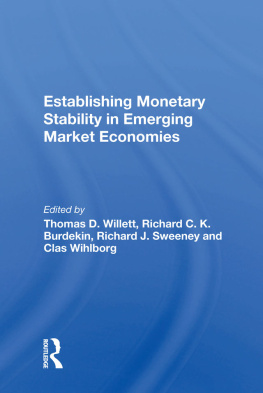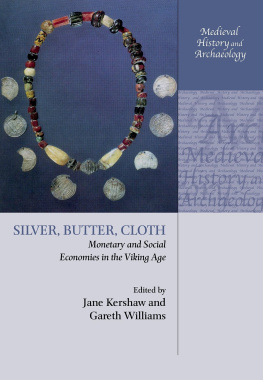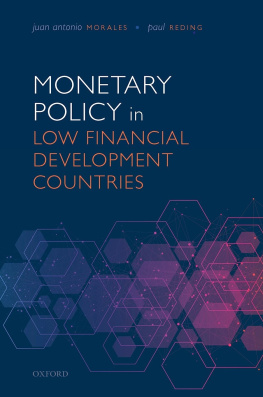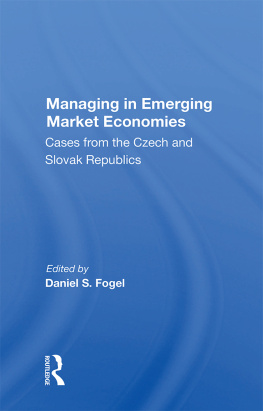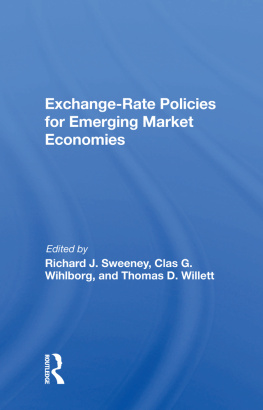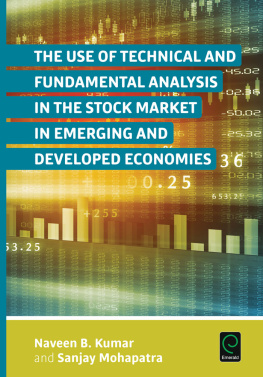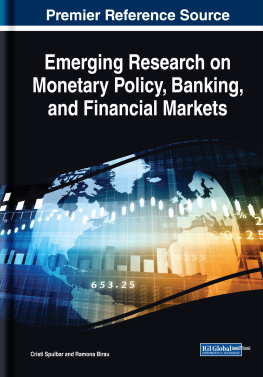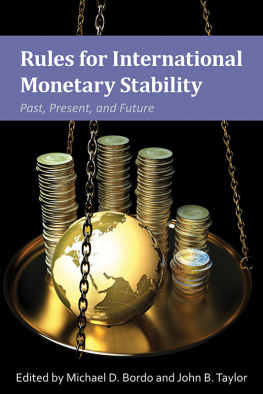Thomas D Willett - Establishing Monetary Stability in Emerging Market Economies
Here you can read online Thomas D Willett - Establishing Monetary Stability in Emerging Market Economies full text of the book (entire story) in english for free. Download pdf and epub, get meaning, cover and reviews about this ebook. year: 2019, publisher: Routledge, genre: Politics. Description of the work, (preface) as well as reviews are available. Best literature library LitArk.com created for fans of good reading and offers a wide selection of genres:
Romance novel
Science fiction
Adventure
Detective
Science
History
Home and family
Prose
Art
Politics
Computer
Non-fiction
Religion
Business
Children
Humor
Choose a favorite category and find really read worthwhile books. Enjoy immersion in the world of imagination, feel the emotions of the characters or learn something new for yourself, make an fascinating discovery.
- Book:Establishing Monetary Stability in Emerging Market Economies
- Author:
- Publisher:Routledge
- Genre:
- Year:2019
- Rating:4 / 5
- Favourites:Add to favourites
- Your mark:
- 80
- 1
- 2
- 3
- 4
- 5
Establishing Monetary Stability in Emerging Market Economies: summary, description and annotation
We offer to read an annotation, description, summary or preface (depends on what the author of the book "Establishing Monetary Stability in Emerging Market Economies" wrote himself). If you haven't found the necessary information about the book — write in the comments, we will try to find it.
Establishing Monetary Stability in Emerging Market Economies — read online for free the complete book (whole text) full work
Below is the text of the book, divided by pages. System saving the place of the last page read, allows you to conveniently read the book "Establishing Monetary Stability in Emerging Market Economies" online for free, without having to search again every time where you left off. Put a bookmark, and you can go to the page where you finished reading at any time.
Font size:
Interval:
Bookmark:
Economies, edited by Thomas D. Willett,
Richard C.K. Burdekin, Richard J. Sweeney, and Clas Wihlborg
Strategy, Blocs, and Empire, John A. Kroll
Canada, the United States, and Mexico, edited by
Donald Barry with Mark O. Dickerson and James D. Gaisford
Policies in the Nineties, Andrew D.M. Anderson
and External Problems of Trade and Money , edited by
Berhanu Abegaz, Patricia Dillon, David H. Feldman, and Paul F. Whiteley
Unification, edited by Barry Eichengreen and Jeffry Frieden
William H. Kaempfer and Anton D. Lowenberg
Michele Fratianni and Jrgen von Hagen
Patchara Surajaras and Richard J. Sweeney
A Public Choice Approach, edited by Roland Vaubel and Thomas D. Willett
Rates, Laurence A. Krause
Political Economy, Benjamin J. Cohen
Thomas D. Willett
Richard C. K. Burdekin
Richard J. Sweeney
Clas Wihlborg

52 Vanderbilt Avenue, New York, NY 10017
2 Park Square, Milton Park, Abingdon, Oxon OX14 4RN
Product or corporate names may be trademarks or registered trademarks, and are used only for identification and explanation without intent to infringe.
Establishing monetary stability in emerging market economies / [edited by]
Willett ... [et al].
p. cm.
Includes bibliographical references and index.
ISBN 0-8133-8905-4 (alk. paper)
1. Monetary policy. 2. Inflation (Finance) 3. Economic
stabilizationGovernment policy. I. Willett, Thomas D.
HG230.3.E86 1995
332.4'91724dc20
CIP
Aspects of the Political Economy of Inflation
Institutional Mechanisms for Promoting Economic Stability
Case Studies
- ii
Richard C. K. Burdekin
Richard J. Sweeney
Clas Wihlborg
Font size:
Interval:
Bookmark:
Similar books «Establishing Monetary Stability in Emerging Market Economies»
Look at similar books to Establishing Monetary Stability in Emerging Market Economies. We have selected literature similar in name and meaning in the hope of providing readers with more options to find new, interesting, not yet read works.
Discussion, reviews of the book Establishing Monetary Stability in Emerging Market Economies and just readers' own opinions. Leave your comments, write what you think about the work, its meaning or the main characters. Specify what exactly you liked and what you didn't like, and why you think so.

